The northeastern Semaq Beri were until recently mobile hunter-gatherers like their Semang neighbours, the Batek. They moved through the forest in small bands of eight to ten families, making temporary camps of lean-to shelters. They hunted arboreal game––monkeys, civets, squirrels and birds––with blowpipes and poison darts, ran down or trapped terrestrial game like tortoises and monitors, fished by hand in the waterways, and foraged for the many kinds of wild tubers, seasonal fruits, and honey. Some fruits were processed and stored in the forest, the people returning to the stores in times when food was scarce. Periodically, the Semaq Beri would camp on the fringe of Malay settlements, collecting forest produce on demand, or engaging in waged labour for Malay villagers in order to obtain salt, knives, tobacco, cloth and other commodities.
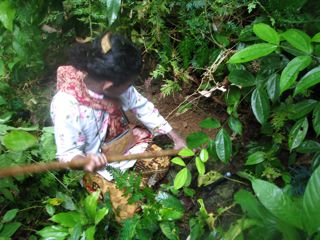
Digging for tubers.
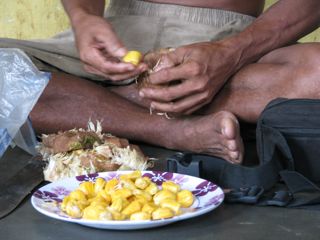
Preparing Artocarpus sp. fruit for cooking.
Semaq Beri society is egalitarian and the conjugal family is the primary social unit. Exogamous marriage was an integral component of the foraging mode, and the Semaq Beri continue to maintain close social relations across their extensive territory both with other groups of Semaq Beri to the south, and with the Batek to the north.
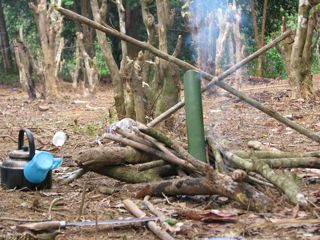
Cooking food in a bamboo tube.
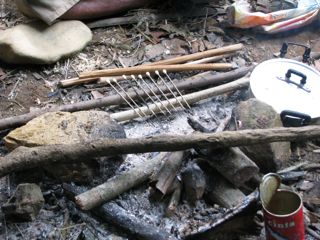
Setting the poison on blowpipe darts.
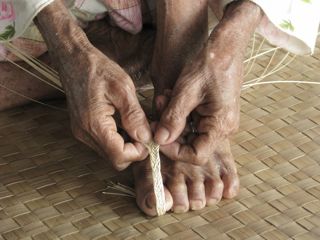
Plaiting a woman’s belt from rattan. The belts were adorned with fragrant leaves.
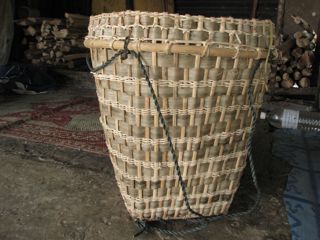
A back-basket constructed from rattan and pandanus leaves. These baskets, used to store and transport one’s possessions, were constructed by men.


